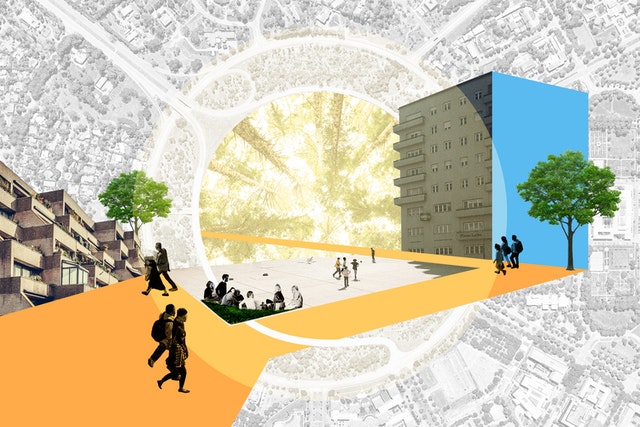The quest for belonging can often be likened to a vast and intricate tapestry, woven together by threads of shared experiences, emotions, and aspirations. In a world that is increasingly fragmented by division and discord, the principles outlined by the Bahá’í teachings resonate profoundly with the contemporary human condition. The Bahá’í International Community’s initiative in Brussels, encapsulated by the theme of “Fostering Unity and Belonging,” serves not merely as a dialogue but as a clarion call to harness our collective strength in cultivating an inclusive society.
At the core of these teachings lies the understanding that humanity is essentially interconnected. This notion emphasizes that our differences—whether they stem from ethnicity, culture, or beliefs—should be celebrated as the diverse brush strokes of a magnificent mural. Each individual adds unique value to the collective picture, and the harmonious blending of these differences is fundamental to fostering belonging. Unity, irrespective of diversity, is not merely a desirable ideal; it is an essential requirement for the flourishing of any community.
To appreciate the nuances of belonging, it is imperative to examine the multifaceted dimensions of unity. Belonging involves emotional security and social connectedness. It fosters a sense of identity that arises not just from individual characteristics, but from our shared environments and collective narratives. The Bahá’í teachings further elucidate that true unity transcends superficial consent; it requires a deep and abiding commitment to understanding and empathy. Here, we introduce the metaphor of a garden: just as a garden thrives when diverse plants coexist and flourish, so too does a community benefit when individuals learn to nurture differences rather than suppress them.
The endeavor to foster belonging is invariably linked to the empowerment of individuals within the community. Empowerment, in this context, implies equipping each person with the tools, knowledge, and agency to participate meaningfully in societal development. This perspective aligns with the Bahá’í commitment to education, which serves as both a catalyst for personal growth and a facilitator of broader social transformation. By fostering an environment where educational opportunities are accessible, individuals are better positioned to contribute to the common good, thus reinforcing their sense of belonging.
Moreover, the importance of dialogue cannot be overstated in the pursuit of unity. The Bahá’í teachings advocate for open, constructive discussions that honor diverse opinions while forging a collective understanding. Dialogue serves not merely as an exchange of ideas but as a bridge, allowing individuals to traverse the chasms of misunderstanding and prejudice. In the context of Brussels, this dialogue can take many forms—formal discussions, community gatherings, or informal conversations over coffee—all of which contribute to building relationships and establishing trust.
As we delve deeper into the elements that foster belonging, we can identify the role of service as another critical factor. Service embodies the spirit of altruism and collective responsibility, two key tenets of the Bahá’í faith. Engaging in acts of service cultivates a sense of purpose and reinforces communal ties. Individuals who contribute to the welfare of others typically experience a heightened sense of belonging, as their efforts forge connections that transcends individualistic pursuits. In this manner, service becomes a reciprocal entity; the giver and the receiver both benefit, fostering a deeper sense of unity.
Another vital aspect of fostering belonging is the recognition and celebration of achievements—both individual and collective. Acknowledging the contributions of various members within a community not only uplifts those individuals but also instills a sense of pride and belonging within the larger group. Celebrating diversity through events that highlight different cultural traditions or achievements enables communities to weave a narrative that is inclusive and enriching. This celebration functions similar to an orchestra; each instrument, unique in its sound, contributes to a harmonious symphony that reflects the beauty of collective existence.
However, in the journey toward fostering belonging, challenges are inevitable. These obstacles often manifest through societal prejudices, historical grievances, and systemic inequities. Addressing such challenges requires a concerted effort to overcome barriers and dismantle structures that perpetuate exclusion. Here, the Bahá’í teachings provide a robust framework for action, urging communities to pursue justice as an essential precursor to unity. Engaging with issues of equity fosters a climate in which belonging can flourish, as individuals feel that their rights are acknowledged and upheld.
In conclusion, the Bahá’í perspective on fostering belonging and unity transcends trivial notions of acceptance; it encapsulates a holistic approach to building a society where every individual is valued as an integral part of the community. By embracing diversity, empowering individuals, facilitating dialogue, engaging in service, and celebrating achievements, communities can cultivate an environment rich in belongingness. The tapestry of humanity is intricate and dynamic, and through intentional efforts, we can stitch together the threads of unity and belonging, creating a vivid mosaic that speaks to our shared aspirations and values.
